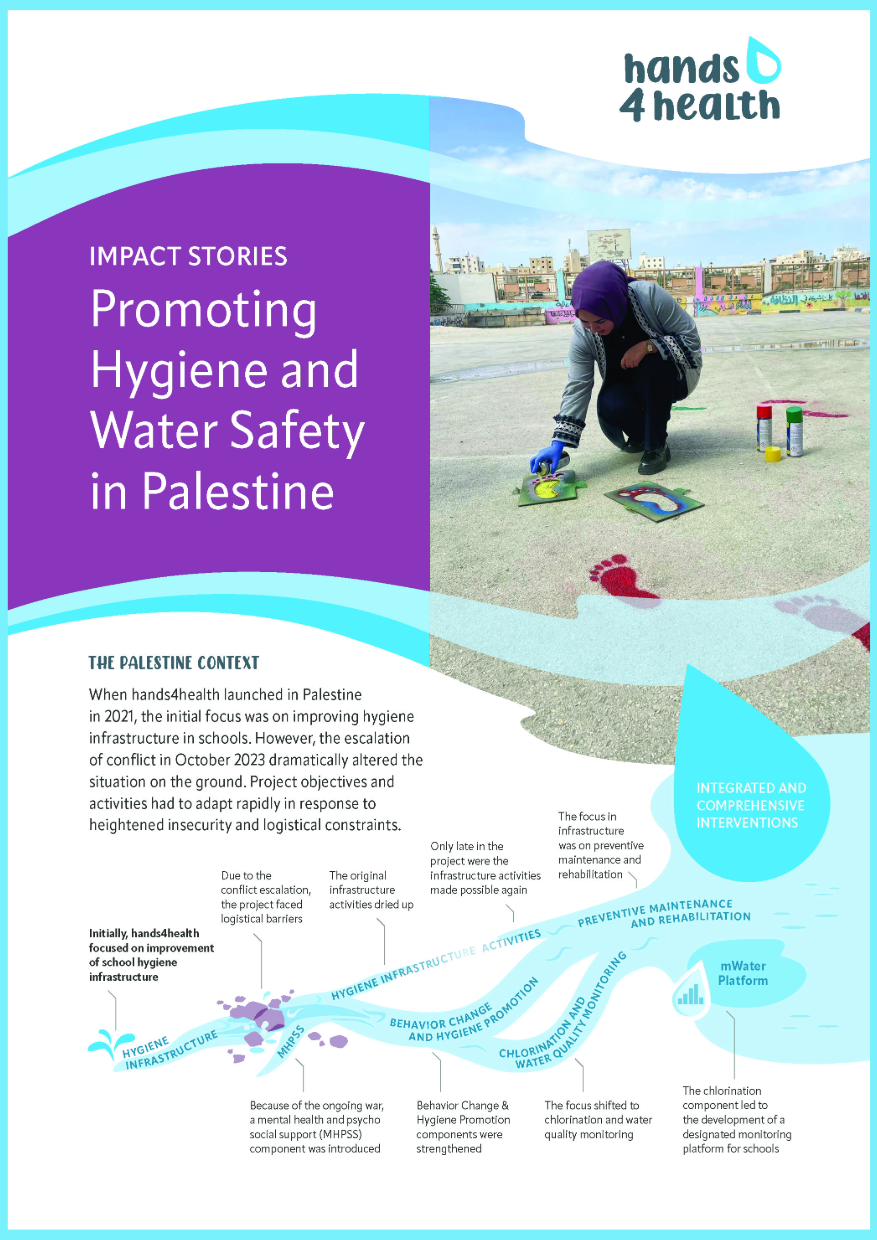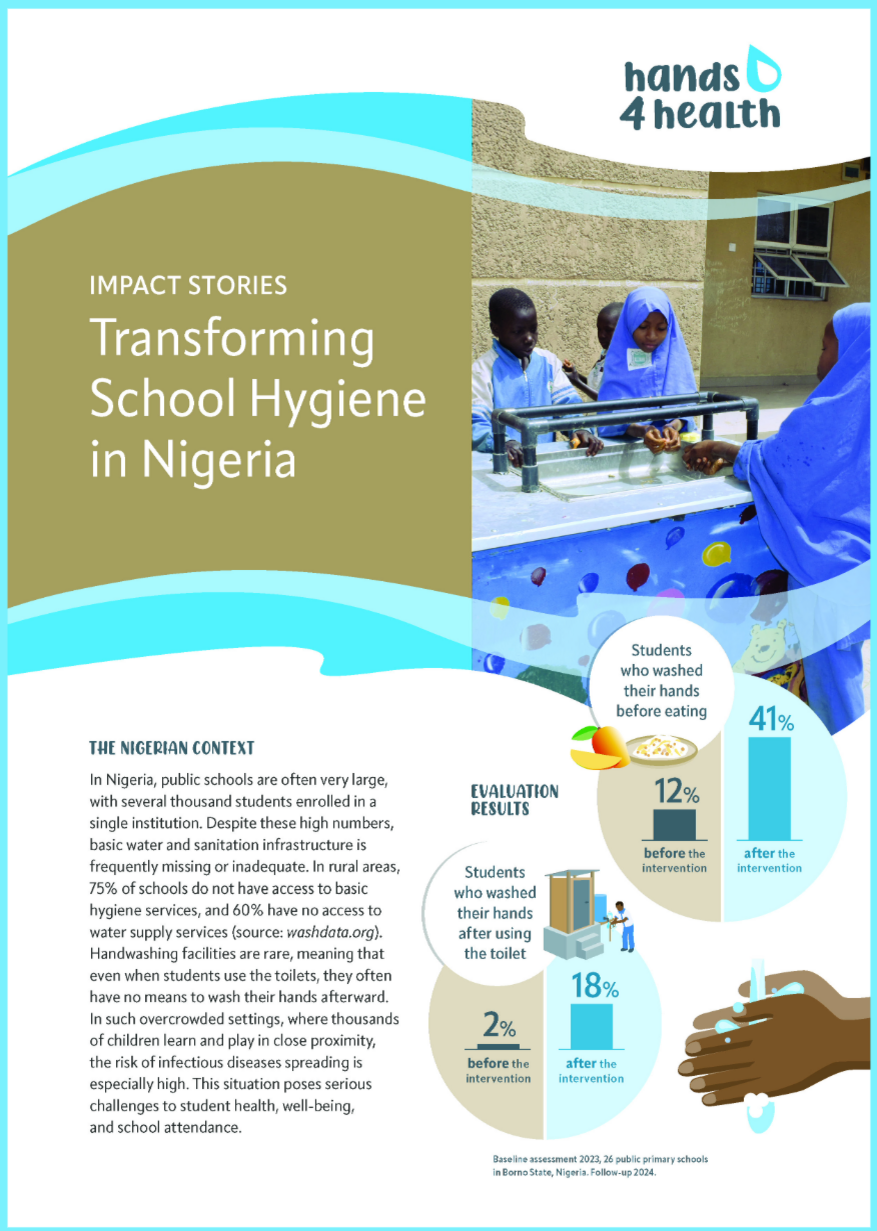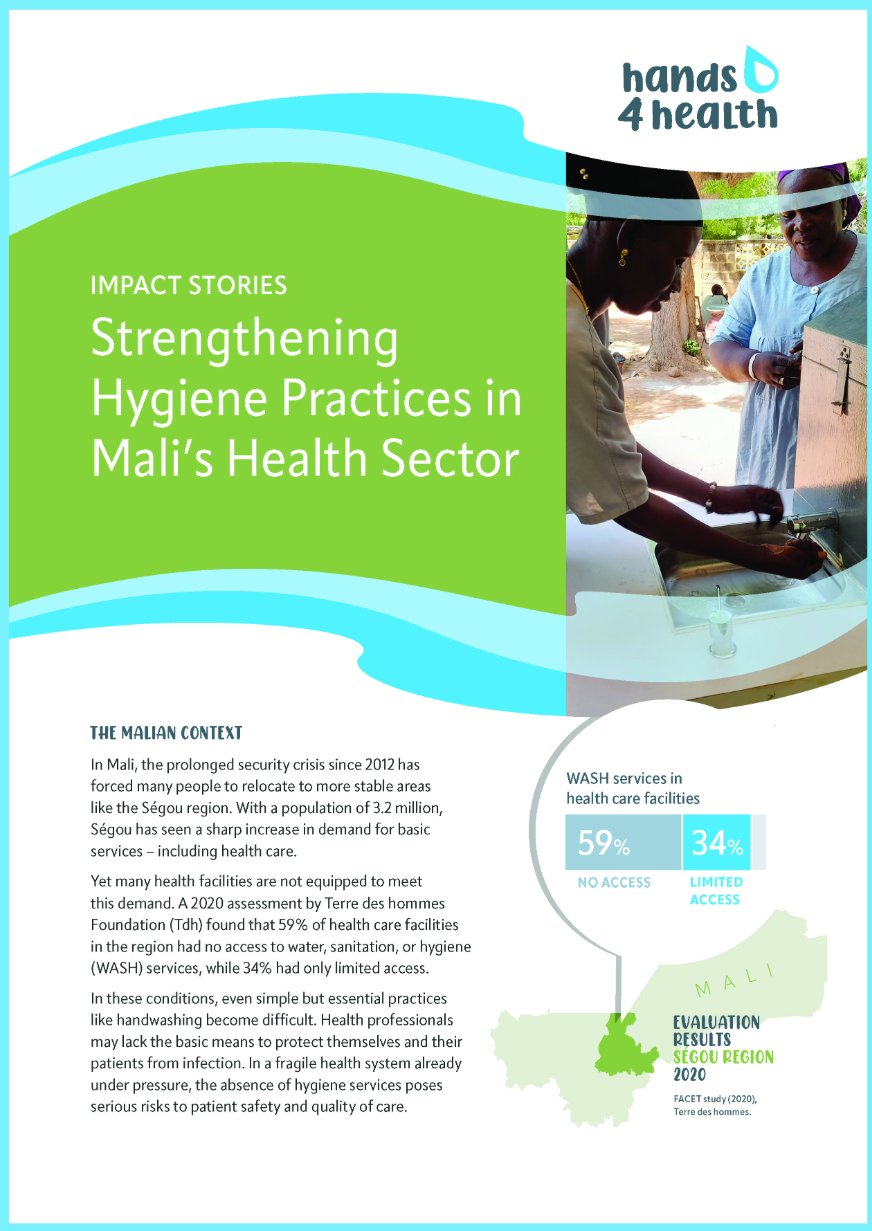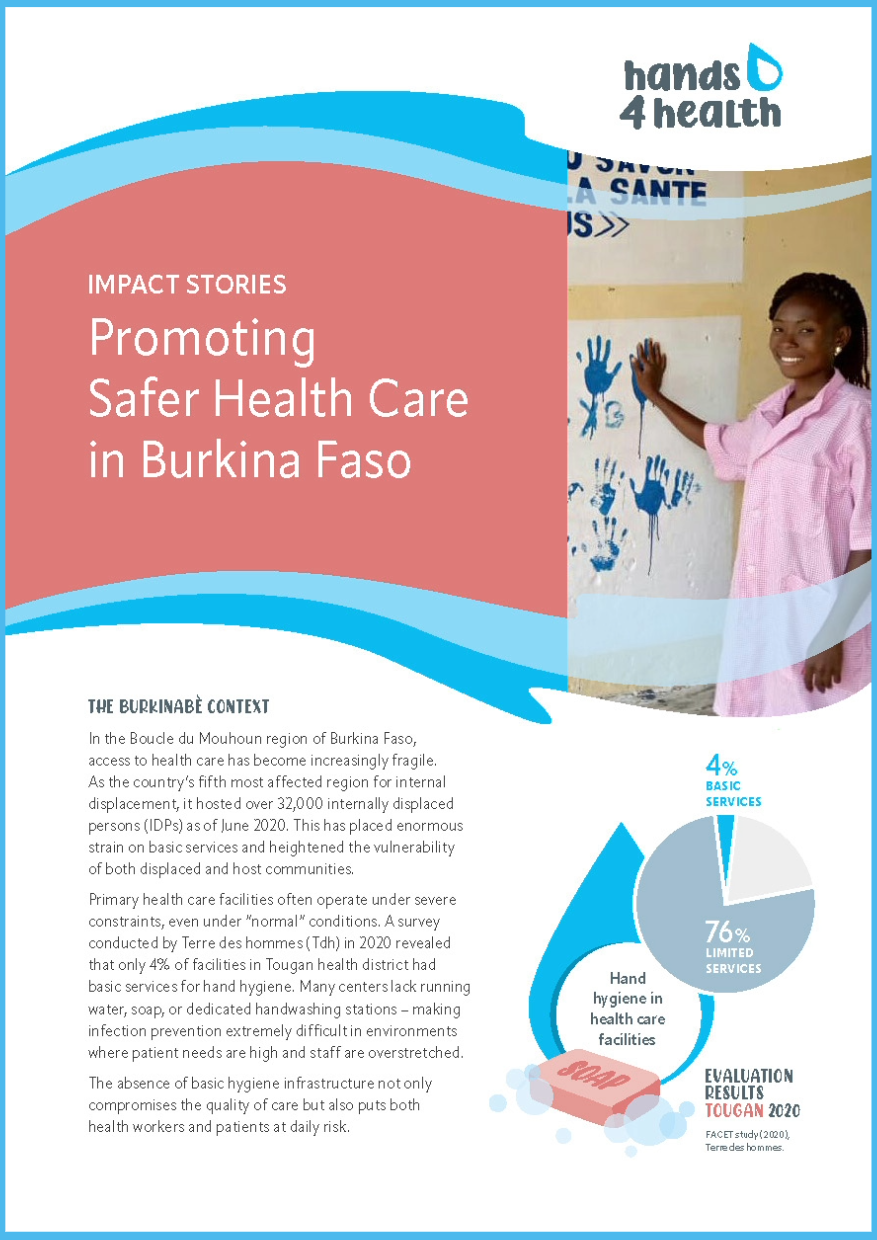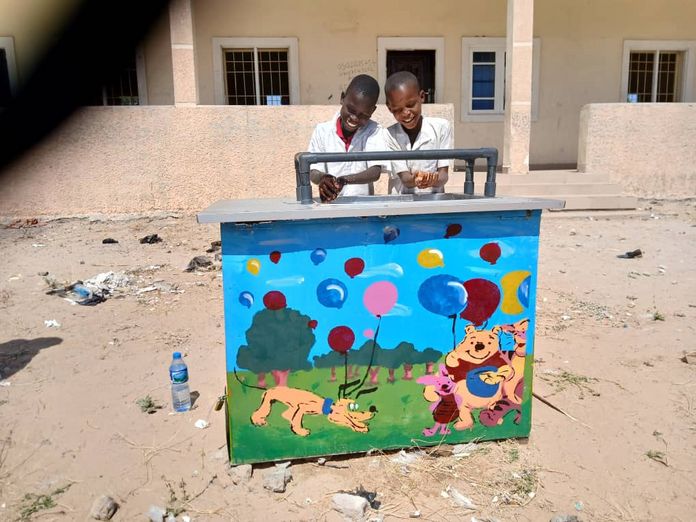
When the hands4health project came to a close, one of our goals was to ensure that the lessons and experiences gathered along the way would continue to inspire others working to improve hygiene and health. To do so, we decided to document the project’s results not only through data and reports, but through stories – narratives that bring people, challenges, and local realities to life.
Writing the hands4health Impact Stories was both a creative and deeply human process. It meant translating complex public health interventions into personal accounts that reflect the lived experiences of those involved – from schoolchildren learning to wash their hands properly to health workers redefining hygiene standards in their facilities.
About hands4health
hands4health was an applied research and implementation project that ran from 2021 to 2024 and was funded by the Swiss Agency for Development and Cooperation (SDC). It brought together ten consortium partners, including academic institutions, NGOs, and social enterprises.
The project combined technical innovation, such as the Gravit’eau handwashing station that recycles and safely reuses water, with behavior change strategies and local capacity building. Its overarching goal was simple yet powerful: to make hand hygiene a sustainable habit, accessible to everyone, everywhere.
By the end of the project, thousands of students, teachers, and health workers had gained access to functional handwashing facilities. More importantly, hands4health fostered ownership and awareness within communities, helping to embed hygiene as an integral part of everyday life rather than an emergency response.
Turning Lessons into Stories
Each Impact Story was designed to highlight not only results, but also the process – what the situation looked like before, how the hands4health approach was implemented, and what difference it made afterward. To create these stories, I worked closely with colleagues and local interviewers who gathered first-hand insights from the project sites.
The writing process involved weaving together their voices, contextual data, and technical details into a narrative that stayed true to local perspectives. Each story – from Palestine, Nigeria, Mali, and Burkina Faso – reveals a different dimension of how hand hygiene can transform schools and health systems when communities, innovation, and commitment come together.

“Each story – from Palestine, Nigeria, Mali, and Burkina Faso – reveals a different dimension of how hand hygiene can transform schools and health systems when communities, innovation, and commitment come together.”
Valérie Bertschy
Knowledge Management Officer, Skat Foundation
Palestine: From school hygiene to water safety under crisis
When conflict escalated in late 2023, hands4health in Hebron shifted from school hygiene infrastructure to what was feasible and most needed: behavior change and water safety. Schools adopted Free Residual Chlorine (FRC) testing, and a new mWater-based dashboard now lets the Ministry of Education track chlorination results and act on high-risk schools. Despite constraints, students’ hand hygiene habits improved, and collaboration between the Ministry of Education and the Ministry of Health strengthened, making follow-up on hygiene issues more responsive. The key lesson: flexible, people-centered delivery keeps impact moving in volatile settings.
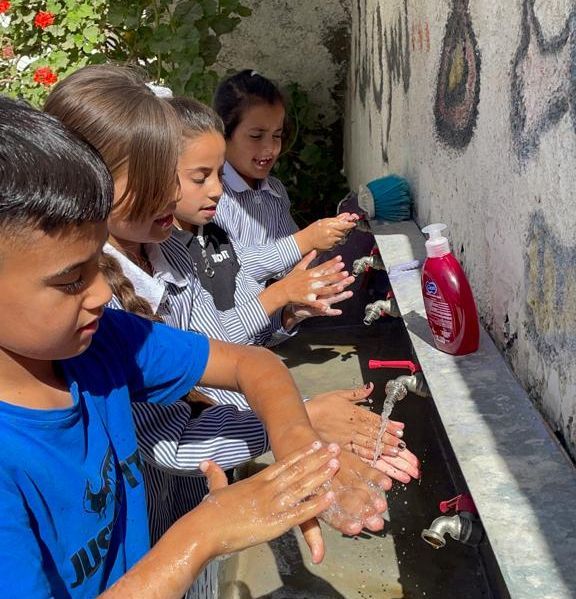
Nigeria: Big schools, visible change, and kids leading at home
In overcrowded public schools in Borno state, installing Gravit’eau stations and pairing them with practical hygiene activities led to measurable behavior change: students who washed hands before eating rose from 12% to 41%, and after toilet use from 2% to 18% (2023 baseline -→ 2024 follow-up). Leadership from the Education Secretary of Maiduguri Metropolitan Council helped align schools and sustain momentum. Students also learned soap-making, turning hygiene into a learning and small enterprise opportunity – and even corrected parents at home about invisible germs.
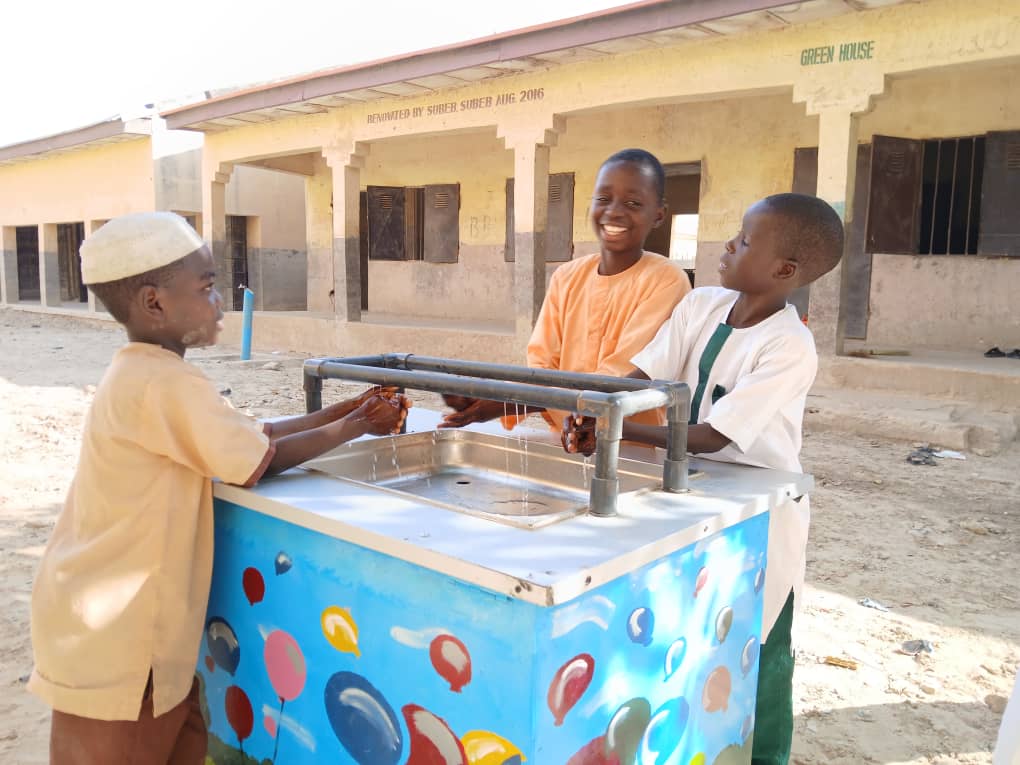
Mali: Reliable handwashing, safer care, and policy shift
Primary health centers in Ségou struggled with no / limited WASH access. Gravit’eau reduced the burden on staff (no more daily treks for water) and enabled consistent handwashing. As chlorination practices proved their worth, authorities began scaling chlorination across the region. With support through the national WASH task force, Mali then updated national WASH guidelines: clearer instructions now cover chlorination and, for the first time, cleaning / maintenance of water tanks – turning everyday practice into national policy for safer care.
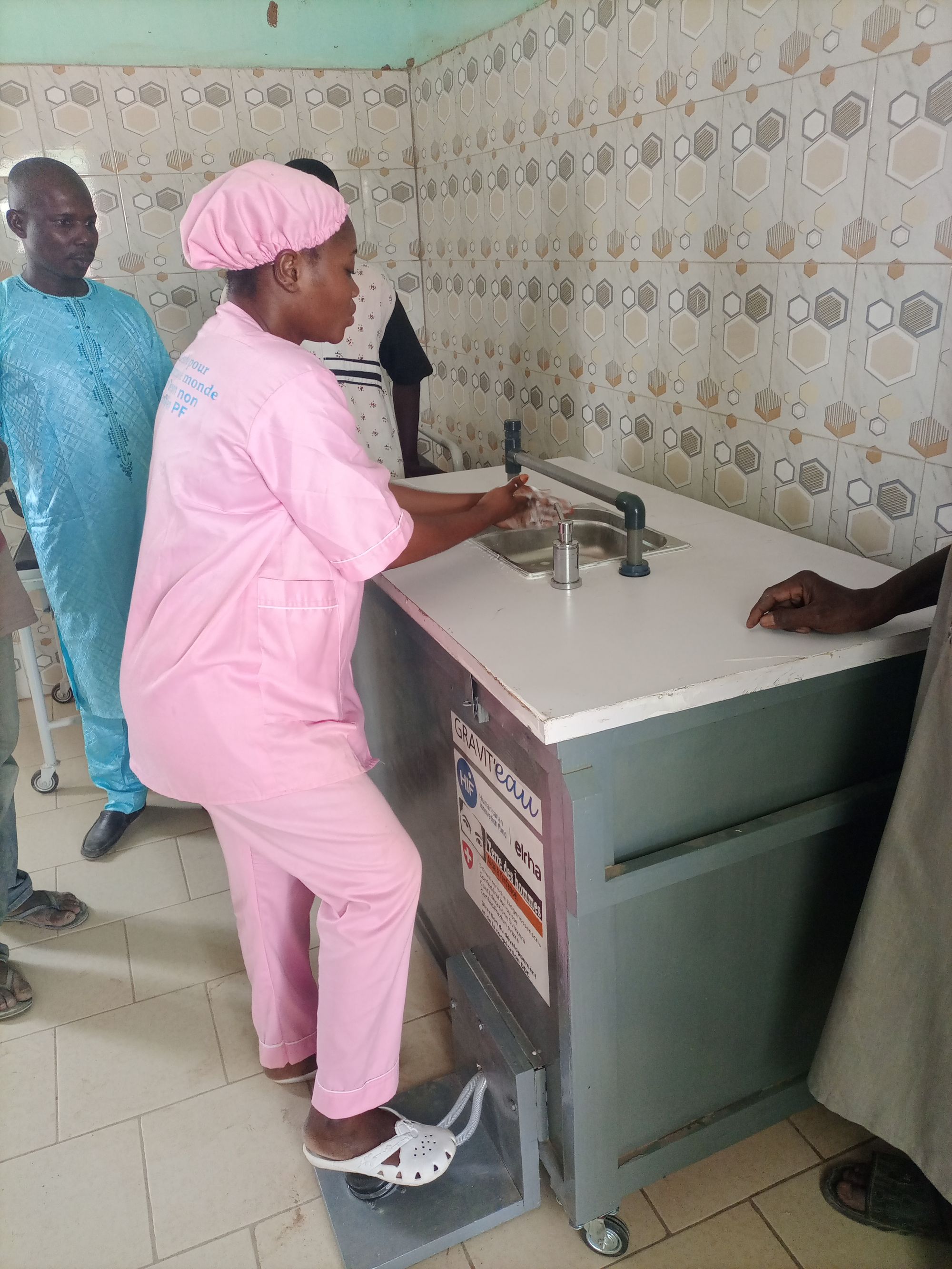
Burkina Faso: Ownership, WASH FIT, and step-by-step behavior change
In Boucle du Mouhoun, where only 4% of facilities in Tougan district had basic hand hygiene services, hands4health paired technical fixes with WASH FIT and locally led behavior change. Training reframed chlorination as “it’s our families too”, deepening staff ownership. Initial hesitancy around recycled, treated water gave way to acceptance through dialogue and practice; meanwhile, simple RANAS-informed “nudges” like painted footsteps guide staff and patients to handwashing stations. Momentum and community ownership grew, with stakeholders taking note – but the story also highlights a gap: handrub availability and use need more attention ahead.
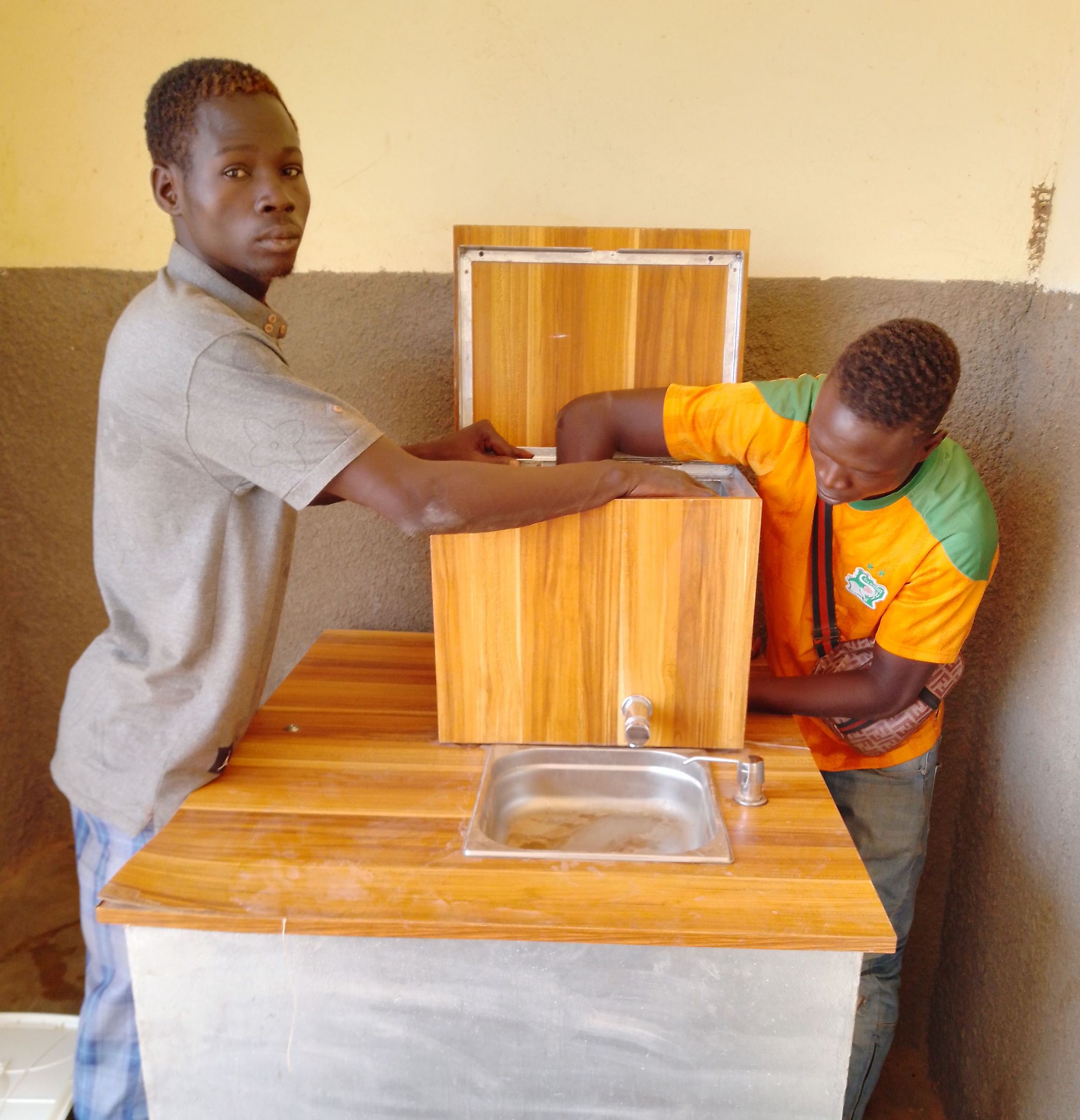
Acknowledgements
The hands4health Impact Stories were written by Valérie Bertschy and edited by Matthias Saladin, with this blog post also authored by Valérie Bertschy from Skat Foundation.
Photo rights: hands4health and CESVI
